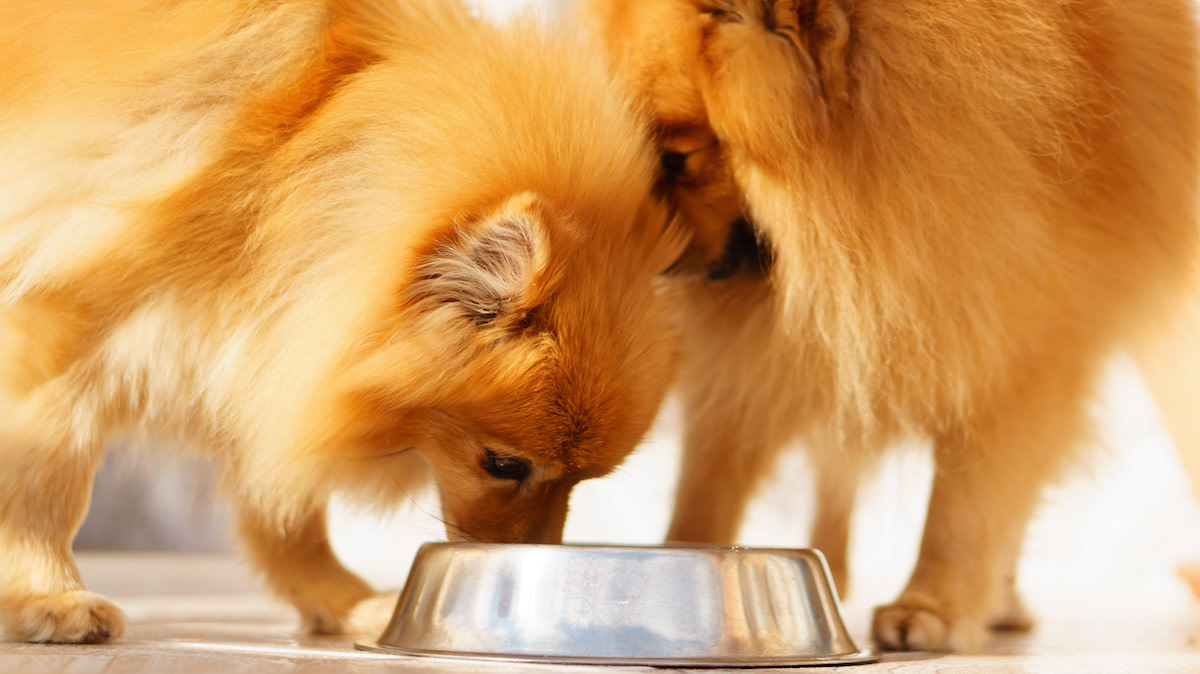Can Dogs Eat Cereal? Why Cereal Is Bad for Dogs
Written by MasterClass
Last updated: Apr 12, 2022 • 2 min read
If you’ve ever wondered whether dogs can eat cereal, the short answer is that they shouldn’t. Read on to learn how cereal can be a risky treat that might not benefit your dog’s health.
Learn From the Best
Can Dogs Eat Cereal?
Generally, the risks of feeding dogs cereal outweigh any potential health benefits. Dog owners can add a few types of whole-grain cereal to a dog’s diet as an occasional treat or caloric filler; however, cereal does not offer dogs the same nutritional value it does to humans.
While most dogs will tolerate small, infrequent portions of plain cereal well, in others, there is the chance of an allergic reaction, gastrointestinal upset, and other negative outcomes. As with any human food, you should gradually introduce small quantities to your pet’s everyday dog food and monitor your pooch for any adverse reactions.
5 Dangers of Feeding Cereal to Dogs
Consider the health risks before letting your dog eat cereal. While it might be tempting to slip a pet a few bites of cereal, the food is not the best option if you’re looking for dog treats. Here are five potential negative outcomes:
- 1. Allergic reaction: Dogs can have adverse reactions to dry or wet cereal if they have a gluten allergy or lactose intolerance (such as with milk). If you suspect your pet has either condition, avoid feeding your furry friend cereal and dairy products. Always closely monitor your dog after they consume a new human food.
- 2. Gastrointestinal upset: The high fiber in some cereals can improve a pet’s digestive system, but large servings can lead to an upset stomach and constipation. Avoid feeding cereal—even grain-free cereals—to dog breeds with sensitive stomachs since they might tolerate ingredients outside of their regular dog food poorly.
- 3. Pancreatitis: The high sugar content and carbohydrates, or carbs, in many commercial cereal brands could cause rapid weight gain in your pet if they overeat this food. Obesity can put severe stress on your pet’s joints and increase their chances of developing heart disease and pancreatitis, or inflammation of the pancreas.
- 4. Tooth decay: In addition to causing weight gain, sugary cereals can wear down the enamel of a dog’s teeth. Bacteria in a canine’s mouth will feed on this added sugar and, in doing so, contribute to plaque and tartar buildup.
- 5. Xylitol poisoning: Artificial sweeteners, such as xylitol, in various types of cereal present perhaps the greatest dangers to your pet’s health. Even low-sugar breakfast cereal options contain additives or preservatives. While humans can consume these without adverse effects, the ingredients are toxic to many animals and will cause harm to the dog’s stomach and nervous system. Common symptoms of xylitol poisoning can include weakness, vomiting, and, in severe cases, tremors and seizures.
Before Sharing With Your Pooch
Certain human foods can cause adverse reactions in canines, so always consult your veterinarian to determine whether it is safe to add these foods to your pet’s diet. This article is for educational and informational purposes and is not a substitute for medical or dietary advice.
Want to Learn More About Training the Goodest Boy or Girl?
Your dream of having a dog who understands words like “sit,” “stay,” “down,” and—crucially— “no” is just a MasterClass Annual Membership away. The only things you’ll need to train up a well-behaved pup are your laptop, a big bag of treats, and our exclusive instructional videos from superstar animal trainer Brandon McMillan.
